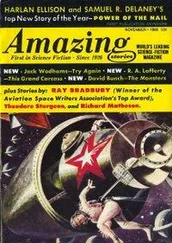Malcolm Gladwell - Blink - The Power of Thinking Without Thinking
Здесь есть возможность читать онлайн «Malcolm Gladwell - Blink - The Power of Thinking Without Thinking» весь текст электронной книги совершенно бесплатно (целиком полную версию без сокращений). В некоторых случаях можно слушать аудио, скачать через торрент в формате fb2 и присутствует краткое содержание. Жанр: Культурология, Психология, на английском языке. Описание произведения, (предисловие) а так же отзывы посетителей доступны на портале библиотеки ЛибКат.
- Название:Blink: The Power of Thinking Without Thinking
- Автор:
- Жанр:
- Год:неизвестен
- ISBN:нет данных
- Рейтинг книги:3 / 5. Голосов: 1
-
Избранное:Добавить в избранное
- Отзывы:
-
Ваша оценка:
- 60
- 1
- 2
- 3
- 4
- 5
Blink: The Power of Thinking Without Thinking: краткое содержание, описание и аннотация
Предлагаем к чтению аннотацию, описание, краткое содержание или предисловие (зависит от того, что написал сам автор книги «Blink: The Power of Thinking Without Thinking»). Если вы не нашли необходимую информацию о книге — напишите в комментариях, мы постараемся отыскать её.
Blink: The Power of Thinking Without Thinking — читать онлайн бесплатно полную книгу (весь текст) целиком
Ниже представлен текст книги, разбитый по страницам. Система сохранения места последней прочитанной страницы, позволяет с удобством читать онлайн бесплатно книгу «Blink: The Power of Thinking Without Thinking», без необходимости каждый раз заново искать на чём Вы остановились. Поставьте закладку, и сможете в любой момент перейти на страницу, на которой закончили чтение.
Интервал:
Закладка:
Our first impressions are generated by our experiences and our environment, which means that we can change our first impressions—we can alter the way we thin-slice—by changing the experiences that comprise those impressions. If you are a white person who would like to treat black people as equals in every way—who would like to have a set of associations with blacks that are as positive as those that you have with whites—it requires more than a simple commitment to equality. It requires that you change your life so that you are exposed to minorities on a regular basis and become comfortable with them and familiar with the best of their culture, so that when you want to meet, hire, date, or talk with a member of a minority, you aren’t betrayed by your hesitation and discomfort. Taking rapid cognition seriously—acknowledging the incredible power, for good and ill, that first impressions play in our lives—requires that we take active steps to manage and control those impressions. In the next section of this book, I’m going to tell three stories about people who confronted the consequences of first impressions and snap judgments. Some were successful. Some were not. But all, I think, provide us with critical lessons of how we can better understand and come to terms with the extraordinary power of thin-slicing.
FOUR. Paul Van Riper’s Big Victory: Creating Structure for Spontaneity
Paul Van Riper is tall and lean with a gleaming bald dome and wire-rimmed glasses. He walks with his shoulders square and has a gruff, commanding voice. His friends call him Rip. Once when he and his twin brother were twelve, they were sitting in a car with their father as he read a newspaper story about the Korean War. “Well, boys,” he said, “the war’s about to be over. Truman’s sending in the marines.” That’s when Van Riper decided that when he grew up, he would join the Marine Corps. In his first tour in Vietnam, he was almost cut in half by gunfire while taking out a North Vietnamese machine gun in a rice paddy outside Saigon. In 1968, he returned to Vietnam, and this time he was the commander of Mike Company (Third Battalion, Seventh Marines, First Marine Division) in the rice-paddy-and-hill country of South Vietnam between two treacherous regions the marines called Dodge City and the Arizona Territory. There his task was to stop the North Vietnamese from firing rockets into Danang. Before he got there, the rocket attacks in his patrol area were happening once or even twice a week. In the three months he was in the bush, there was only one.
“I remember when I first met him like it was yesterday,” says Richard Gregory, who was Van Riper’s gunnery sergeant in Mike Company. “It was between Hill Fifty-five and Hill Ten, just southeast of Danang. We shook hands. He had that crisp voice, low to middle tones. Very direct. Concise. Confident, without a lot of icing on the cake. That’s how he was, and he maintained that every day of the war. He had an office in our combat area—a hooch—but I never saw him in there. He was always out in the field or out near his bunker, figuring out what to do next. If he had an idea and he had a scrap of paper in his pocket, he would write that idea on the scrap, and then, when we had a meeting, he would pull out seven or eight little pieces of paper. Once he and I were in the jungle a few yards away from a river, and he wanted to reconnoiter over certain areas, but he couldn’t get the view he wanted. The bush was in the way. Damned if he didn’t take off his shoes, dive into the river, swim out to the middle, and tread water so he could see downstream.”
In the first week of November of 1968, Mike Company was engaged in heavy fighting with a much larger North Vietnamese regiment. “At one point we called in a medevac to take out some wounded. The helicopter was landing, and the North Vietnamese army was shooting rockets and killing everybody in the command post,” remembers John Mason, who was one of the company’s platoon commanders. “We suddenly had twelve dead marines. It was bad. We got out of there three or four days later, and we took a number of casualties, maybe forty-five total. But we reached our objective. We got back to Hill Fifty-five, and the very next day, we were working on squad tactics and inspection and, believe it or not, physical training. It had never dawned on me as a young lieutenant that we would do PT in the bush. But we did. It did not dawn on me that we would practice platoon and squad tactics or bayonet training in the bush, but we did. And we did it on a routine basis. After a battle, there would be a brief respite, then we would be back to training. That’s how Rip ran his company.”
Van Riper was strict. He was fair. He was a student of war, with clear ideas about how his men ought to conduct themselves in combat. “He was a gunslinger,” another of his soldiers from Mike Company remembers, “somebody who doesn’t sit behind a desk but leads the troops from the front. He was always very aggressive but in such a way that you didn’t mind doing what he was asking you to do. I remember one time I was out with a squad on a night ambush. I got a call from the skipper [what marines call the company commander] on the radio. He told me that there were one hundred twenty-one little people, meaning Vietnamese, heading toward my position, and my job was to resist them. I said, ‘Skipper, I have nine men.’ He said he would bring out a reactionary force if I needed one . That’s the way he was. The enemy was out there and there may have been nine of us and one hundred twenty-one of them, but there was no doubt in his mind that we had to engage them. Wherever the skipper operated, the enemy was put off by his tactics. He was not ‘live and let live.’”
In the spring of 2000, Van Riper was approached by a group of senior Pentagon officials. He was retired at that point, after a long and distinguished career. The Pentagon was in the earliest stages of planning for a war game that they were calling Millennium Challenge ’02. It was the largest and most expensive war game thus far in history. By the time the exercise was finally staged—in July and early August of 2002, two and a half years later—it would end up costing a quarter of a billion dollars, which is more than some countries spend on their entire defense budget. According to the Millennium Challenge scenario, a rogue military commander had broken away from his government somewhere in the Persian Gulf and was threatening to engulf the entire region in war. He had a considerable power base from strong religious and ethnic loyalties, and he was harboring and sponsoring four different terrorist organizations. He was virulently anti-American. In Millennium Challenge—in what would turn out to be an inspired (or, depending on your perspective, disastrous) piece of casting—Paul Van Riper was asked to play the rogue commander.
The group that runs war games for the U.S. military is called the Joint Forces Command, or, as it is better known, JFCOM. JFCOM occupies two rather nondescript low-slung concrete buildings at the end of a curving driveway in Suffolk, Virginia, a few hours’ drive south and east of Washington, D.C. Just before the entrance to the parking lot, hidden from the street, is a small guard hut. A chain-link fence rings the perimeter. There is a Wal-Mart across the street. Inside, JFCOM looks like a very ordinary office building, with conference rooms and rows of cubicles and long, brightly lit carpetless corridors. The business of JFCOM, however, is anything but ordinary. JFCOM is where the Pentagon tests new ideas about military organization and experiments with new military strategies.
Planning for the war game began in earnest in the summer of 2000. JFCOM brought together hundreds of military analysts and specialists and software experts. In war game parlance, the United States and its allies are always known as Blue Team, and the enemy is always known as Red Team, and JFCOM generated comprehensive portfolios for each team, covering everything they would be expected to know about their own forces and their adversary’s forces. For several weeks leading up to the game, the Red and Blue forces took part in a series of “spiral” exercises that set the stage for the showdown. The rogue commander was getting more and more belligerent, the United States more and more concerned.
Читать дальшеИнтервал:
Закладка:
Похожие книги на «Blink: The Power of Thinking Without Thinking»
Представляем Вашему вниманию похожие книги на «Blink: The Power of Thinking Without Thinking» списком для выбора. Мы отобрали схожую по названию и смыслу литературу в надежде предоставить читателям больше вариантов отыскать новые, интересные, ещё непрочитанные произведения.
Обсуждение, отзывы о книге «Blink: The Power of Thinking Without Thinking» и просто собственные мнения читателей. Оставьте ваши комментарии, напишите, что Вы думаете о произведении, его смысле или главных героях. Укажите что конкретно понравилось, а что нет, и почему Вы так считаете.












